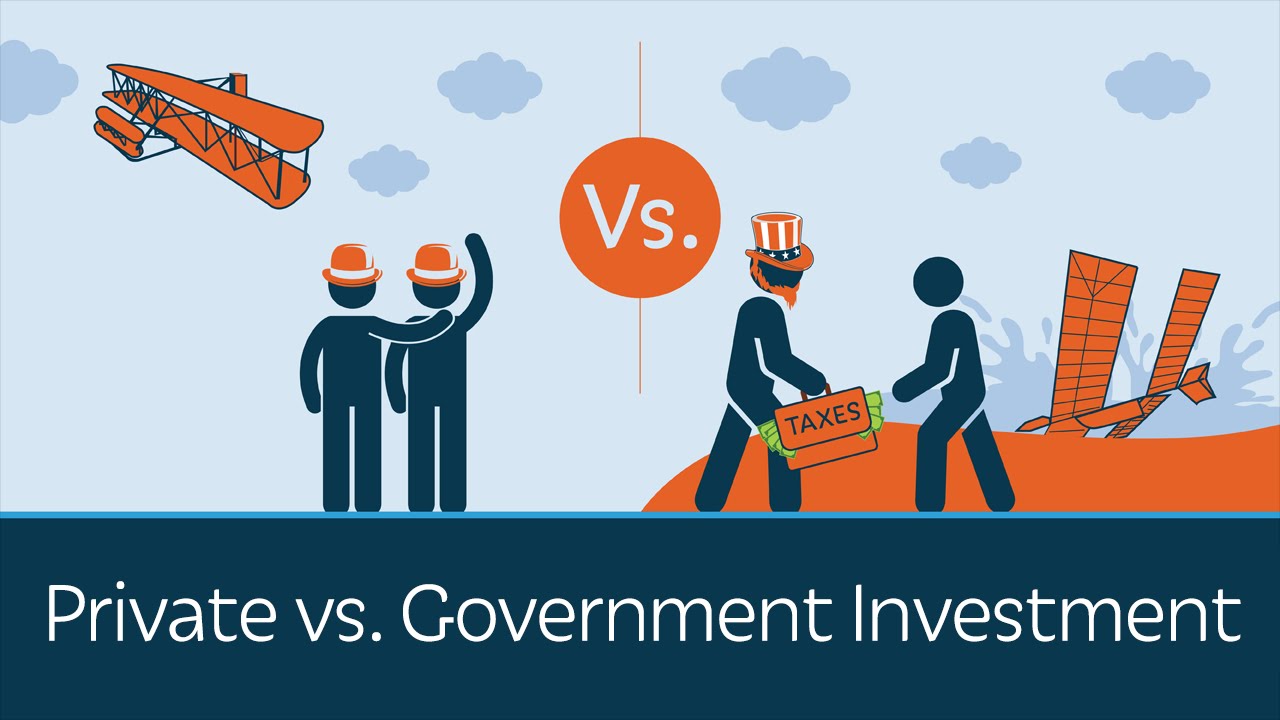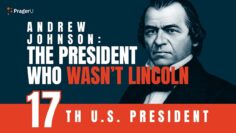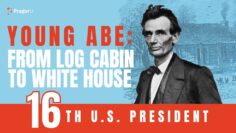
Why Private Investment Works & Govt. Investment Doesn’t | 5 Minute Video
From transportation to energy, and everything in between, should the government invest money in as many promising projects as possible? Or would that actually doom many of those ventures to failure? Burt Folsom, historian and professor at Hillsdale College, answers those questions by drawing on the fascinating history of the race to build America’s railroads and airplanes.
Donate today to PragerU! http://l.prageru.com/2ylo1Yt
Joining PragerU is free! Sign up now to get all our videos as soon as they’re released. http://prageru.com/signup
Download Pragerpedia on your iPhone or Android! Thousands of sources and facts at your fingertips.
iPhone: http://l.prageru.com/2dlsnbG
Android: http://l.prageru.com/2dlsS5e
Join Prager United to get new swag every quarter, exclusive early access to our videos, and an annual TownHall phone call with Dennis Prager! http://l.prageru.com/2c9n6ys
Join PragerU’s text list to have these videos, free merchandise giveaways and breaking announcements sent directly to your phone! https://optin.mobiniti.com/prageru
Do you shop on Amazon? Click https://smile.amazon.com and a percentage of every Amazon purchase will be donated to PragerU. Same great products. Same low price. Shopping made meaningful.
VISIT PragerU! https://www.prageru.com
FOLLOW us!
Facebook: https://www.facebook.com/prageru
Twitter: https://twitter.com/prageru
Instagram: https://instagram.com/prageru/
PragerU is on Snapchat!
JOIN PragerFORCE!
For Students: http://l.prageru.com/29SgPaX
JOIN our Educators Network! http://l.prageru.com/2c8vsff
Script:
In 2011, a solar power company called Solyndra declared bankruptcy. A company going bankrupt is not news. But Solyndra was not just any company. Its biggest “investor” was the federal government which had given it $500 million dollars. That was news.
But, really, it shouldn’t have been. If history is any guide, it was quite predictable. The government is a very poor investor. And always has been. There are countless examples, but two should serve our purpose here.
After the Civil War, American leaders were anxious to bind the country’s North, South, East, and West regions together with transcontinental railroads. Congress therefore gave massive federal aid to build the Union Pacific, the Central Pacific, and later the Northern Pacific Railroads. But all three of these roads had huge financial problems. The Union Pacific, for example, was mired in financial scandal from its inception, went bankrupt several times, and had to rebuild large sections of track thanks to shoddy construction practices.
At that same time, James J. Hill, with no federal aid whatsoever, built a railroad from St. Paul to Seattle — the Great Northern. How was Hill able to do with private funds what the Union Pacific failed to do with a gift of tens of millions of federal dollars?
The starting point is incentives. The Union Pacific was paid by the government for each mile of road it built. It was in the railroad’s interest not to build the road straight. The more miles it took the UP to cross Nebraska, for example, the more money it made.
Hill, by contrast, used his own capital. To make a profit, he had to build his Great Northern Railroad sturdy and straight. Hill’s company remained in business for almost a hundred years until 1970 when it merged with other railroads. The original Union Pacific, riddled with corruption and numerous other financial misdeeds, including the wholesale bribery of public officials, went broke within ten years.
The story of the airplane is even more stark. By the opening of the twentieth century, the major nations of Europe and America were frantically at work trying to invent a flying machine. The first nation to do so would have a huge military and commercial advantage.
In fact, leading American politicians of the day, such as Teddy Roosevelt, President William McKinley, and others argued that building an airplane was a national emergency. There was no time, they argued, to wait for private industry to get the job done. The government needed to pick the best aeronautics expert and give him the money he needed.
That expert was Samuel Langley, the president of the prestigious Smithsonian Institution and holder of honorary degrees from Harvard, Yale, Oxford, and Cambridge. Langley was already an accomplished inventor and he had written a highly praised book Experiments in Aerodynamics. Federal officials gave Langley funds for two trial flights. He immediately set to work. His theory was that his plane needed to be thrust into the air from a houseboat on the Potomac River. The big engine on the plane would then propel it through air for several minutes.
For the complete script, visit https://www.prageru.com/videos/why-private-investment-works-govt-investment-doesnt
source











A real capitalism society would be great. If we would stop abusing our world reserve currency status and printing fake money, we would begin to flourish again.
Government does not need money, it is not a family or a business that use money from a supply of money determined by someone else. Government CREATES money. We want ignore all the innovation government brought (microprocessor, all the basic research, the moon landing, …)? We are here saying that public investment is bad, when it creates wealth without precedents for the working class? Even Einstein was for public investment (read "Why socialism") and now we are believing at a propaganda channel funded from some trust fund babies who hates the possibility to work hard like everybody else and to protect their clearly antagonist interests try to poison your minds. Open your eyes. They are your enemies, not some gay guy or blue haired girl who could not hurt us even if they would (and the wouldn't)
efective government still rare.
Manhattan project?
Mariana Mazzucato enters the chat
Keep government out of private enterprise. In fact begin defunding all of these agencies and reduce the tax burdens
Government should just create fair access to opportunity and then get out of the way.
always these silly generalisations, without government investments there would have never been an america or israel, Prager U is run by inbaciles, entire colonisation of america would have never happened without government investments, you have to be VERY specific if you dont want to emberass yourself.
Ignoring that federal infrastructure projects through federal spending got us out of the great depression, this is hayeks chocolate covered pickles agrument all over again. We gave money for buy outs in banks and yet we havent see a bad investment since and without government investments in the sciences we would not have any breakthroughs, that's why china is so dominant they're spending so much money on tech, you can infinitely pull a bad investment as a gotcha. But also the whole using other peoples money argument is stupid, if a private firm invests into a companys the company has no incentive to not blow that money as it is some one else's money. Yet investments firm rake in billions and usually use more money then the government and yet if a bad investment happens they just suck it up and continue aka what america should do, so we shouldnt not spend more money especially if their is a high return on invest at the end.
I'll bet the San Francisco Chronicle would never write such a headline today.
Many, many thanks for sharing this !
Free enterprise wins every time.
Mr. Folsom also wrote a book on this subject titled The Myth of the Robber Barons, I enjoyed it immensely.
요즘, 아니 늘 그랬는지도?
정치가들은 세금을 자기돈으로 만들려고 온갖 일들을 일으킵니다.
moon landing is done by private company— wait !!. Devil is always in detail
How can the failed railways be a govt failure when among the faults are bribery of govt officials. Govt may have been paying for it but it was private companies doing the work. IF private investment works so well, why did it need to be govt funded? – because it was too difficult for private investment, they knew it was going to be very very expensive and would not be profit making. Govt should have ran it like the army and brought experts in on its payroll, it would then have been built like the successful railway and taxpayers would have got the profits or a cheaper railway. The lesson is that no strategic infrastructure should include the private sector because they are corrupt and overly expensive.
If we entrusted space travel in the hands of private enterprise during the space race,we'd already have space colonies.
A good example of this treatise is comparing Space-x to NASA. Look at the advances Elon Musk has made in just a few years compared to the lack of it with NASA. There is nothing the Government can do better than the private sector with only a very small handful of exceptions.
Stupid. What if the Wright brothers never existed?
Truth
But I bet you that all of you still vote and pay taxes, and defend the constitution.
I doubt you would have the stones to cover the Bonneville Power Administration, the Tennessee Valley Authority, the Bureau of Reclamation, or the Army Corps of Engineers.
investment needs to return profit but no government yields profit